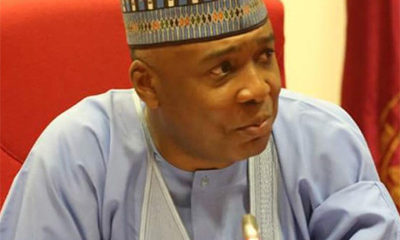Health
Ekiti State Set To Offer 405 Residents Free Cataract Surgery

Eniola Olayemi
No fewer than 405 residents of Ekiti State are to benefit from free cataract surgery sponsored by the state government.
Governor Kayode Fayemi while flagging off the programme on Wednesday restated his administration commitment to quality healthcare delivery.
Fayemi said his administration was partnering with the Federal Government and the Ophthalmologist Society of Nigeria under the Ekiti Free Cataract Surgery/President Buhari Restores Vision Programme to restore the sight of the patients.
The surgery according to him would be done simultaneously at Ekiti State University Teaching Hospital (EKSUTH), Ado-Ekiti; State Specialist Hospital, Ikere-Ekiti and Federal Teaching Hospital, Ido-Ekiti.
The governor who was represented by his deputy, Otunba Bisi Egbeyemi, at the flag off held at EKSUTH, Ado-Ekiti, said the gesture was aimed at addressing the burden of increasing blindness from cataract and assist residents who are financially handicapped to sponsor their treatment.
He explained that an average of 250 surgeries was to be carried out per state, saying that of Ekiti was increased to 405 to give more cataract patients in the state opportunity to benefit from the scheme.
The governor noted that Ado, Ikere and Ido were carefully chosen as centres cutting across the three senatorial districts to make the scheme accessible to people in the grassroots.
Fayemi disclosed that 200 of the cases were screened during the first phase of his administration’s Free Health Mission which provided medical services to 67,000 people across the eleven local government areas visited.
Describing cataract as a leading cause of blindness, Fayemi disclosed that 4.25 million Nigerian adults aged above 40 are visually impaired while 5.5 per cent of adults aged 50 and above are estimated to be blind.
He explained that government was tackling cataract headlong by offering to sponsor the surgery and helped the patients overcome financial constraints to restore their vision.












